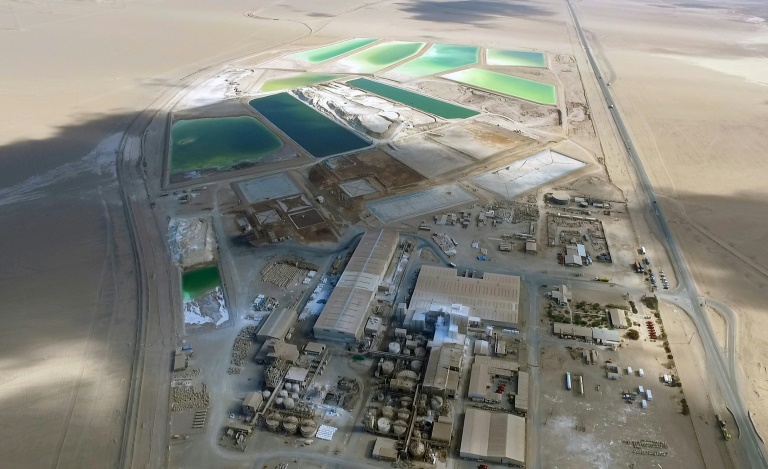A Chilean appeals court on Friday suspended a million-dollar state lithium tender issued two days earlier that had generated controversy for coming just two months before the end of conservative President Sebastian Pinera’s term.
“Bearing in mind that the contested act is in full execution, it is agreed not to innovate, paralyzing the bidding and award process for the lithium, while this appeal is resolved,” said the court in Copiapo in the north of the country, according to documents seen by AFP.
China’s BYD Chile SpA and Chile’s Servicios y Operaciones Mineras del Norte S.A. were awarded the right to extract 80,000 tons of lithium each over 20 years, the minerals ministry said Wednesday.
Leftist president-elect Gabriel Boric’s team had asked the government to postpone the tenders and set up a “roundtable” to discuss various conditions to apply to the contracts.
Mining minister Juan Carlos Jobet had said Wednesday the government would work with the successful companies to ensure that “a portion of the payments they must make be used to support local communities and to invest in research and development.”
And on Friday, the mining ministry said the tender has not been the subject of a “definitive cancellation” and that the process had been “open, informed, transparent and has complied with all current legislation.”
The court accepted an appeal for protection filed by the governor of Copiapo, Miguel Vargas, together with a group of Aymara and Diaguita Indigenous communities that inhabit a salt flat in the Atacama desert.
Although the government tender does not stipulate the place of extraction of the lithium, the salt flats of northern Chile are where the main deposits of the mineral are to be found.
According to the mining ministry, the tender process seeks to restore Chile’s position in the world lithium market. Until 2016, the country was the world’s largest producer with 37 percent of the market, but today it ranks second behind Australia, with 32 percent.
If the country fails to increase its production, by 2030 its share would fall to 17 percent, according to official statistics.









